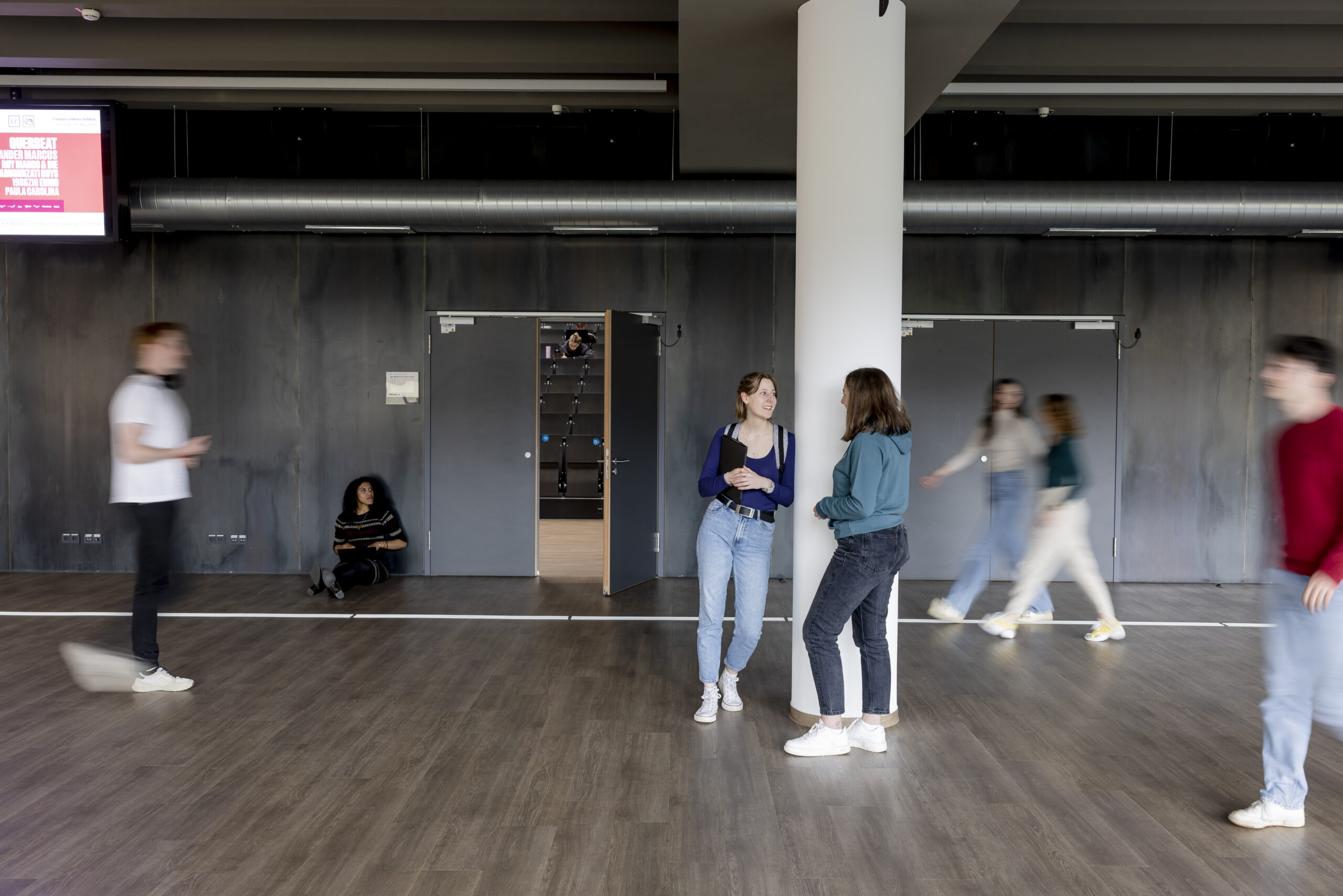
Master
Industrial engineering
Short info about the course of study
| Restricted admission | Standard period of study | Start of studies |
| no | 4 semesters | Summer and winter semester |
Authorisation procedure
The program is admission-free, but an application is required.
Application deadline
01 October to 15 March Application possible for the summer semester
01 April to 30 September Application possible for the winter semester
completion
Master of Science
Further information about the degree programme
Language of instruction
German
The course of study
Industrial engineers get to know both technical and economic topics from the beginning of their studies. This interdisciplinary competence enables them to understand the different ways of thinking and questions of both areas. The following skills distinguish industrial engineers:
- Combination of technical expertise and economic judgement
- Analysis of problems or finding solutions through integrated thinking
- Within the degree programme, the University of Siegen offers four areas of specialisation in engineering, one of which is chosen. Each of these specializations consists of three basic modules and elective modules. Furthermore, five economics specializations are offered, two of which are chosen.
Study structure
| Engineering specialisation |
| 1. – 3. semesters Compulsory modules: 2 or 3 compulsory modules from selected specialisation Compulsory elective modules: 2 or 3 elective modules from selected specialisation |
| Specialisation in economics |
| 1. – 3. semesters Compulsory elective modules: 2 modules each from 2 selected specializations |
| Non-technical elective module, specialist laboratories, internship and master's thesis |
| 1. – 4. semesters Compulsory elective modules: 1 non-technical specialisation module Laboratories/project work: 2 specialist laboratories (of which 1 from the selected specialisation) or 1 project work Industrial internship: Internship (6 weeks) Master's thesis with final lecture |

5 reasons to study Industrial Engineering in Siegen
✓ Gain interdisciplinary competence to understand different ways of thinking and questions in technology and business and later to be able to take on exciting tasks in business and industry.
✓ close cooperation of the University of Siegen with the large number of hidden champions in the region around Siegen – thus early industrial contacts in the course of studies.
✓ very good mentoring relationship with personal contacts to professors and academic staff
✓ Low cost of living compared to other university locations
✓ Broad professional field with excellent development prospects in the areas of project management, sales, purchasing, controlling, management, production, logistics, quality management, consulting, and much more.
Career prospects
Industrial engineers have special opportunities on the job market due to their skills as both an engineer and a manager. With their interdisciplinary knowledge, they solve complex tasks independently and in teams. They are able to quickly familiarize themselves with new topics and technologies and to make innovations meaningful.
Admission requirements
- The bachelor's degree in industrial engineering, mechanical engineering or vehicle construction at the University of Siegen or another, technically comparable, at least three years of study with a completed bachelor's examination or a comparable final examination with at least the grade (3.0) is required.
- In order to prove the degree program-related prior education, the previous bachelor's degree program in the thematic focuses and specializations must largely correspond to the respective bachelor's degree program of the University of Siegen in accordance with the course plan of this degree program. The course plan can be found in an annex to the subject examination regulations.
- The prerequisite for admission to the Master's programme in Mechanical Engineering is also the proof of knowledge of the English language at level B2 in accordance with the Common European Framework of Reference for Languages (CEFR) or at the level of a TOEFL iBT (Internet based TOEFEL) of at least 87 or an IELTS 6.0. With a German Abitur, this requirement is already fulfilled.
Important information
A 6-week industrial internship must be completed by the end of the master's program. The details are regulated by the internship regulations.
Study organisation
Subject examination regulations and module descriptions/course plan/internship regulations
The Specialised Examination Regulations (FPO) define the basic structures of a course of study (e.g. entry requirements and content to be studied). For students, the current version of an FPO automatically applies when enrolling in the first semester. This means that even in the event of changes to the FPO during the course of your studies, the original version according to which you have registered is valid (provided that this FPO does not expire). Additional regulations and details for each module to be studied can also be found in the annexes to the subject examination regulations (e.g. requirements for taking a written examination or information on the content of the modules/events, ...).
The respective course plan represents the recommended exemplary course of study in the individual subjects and is part of an FPO.
The Traineeship Regulations define the conditions under which mandatory or optional traineeships must be completed.
Before the start of the lecture period, we recommend that you at least look at the course schedule of your course of study so that you know which modules are planned for the start of your studies.

Advice and contact
Make an appointment now at:
info.studienberatung@zsb.uni-siegen.de
or by phone at: 0271 740-2712
(Mon – Thu: 9 a.m. - 4 p.m. / Fri: 9 a.m. – 12 noon)